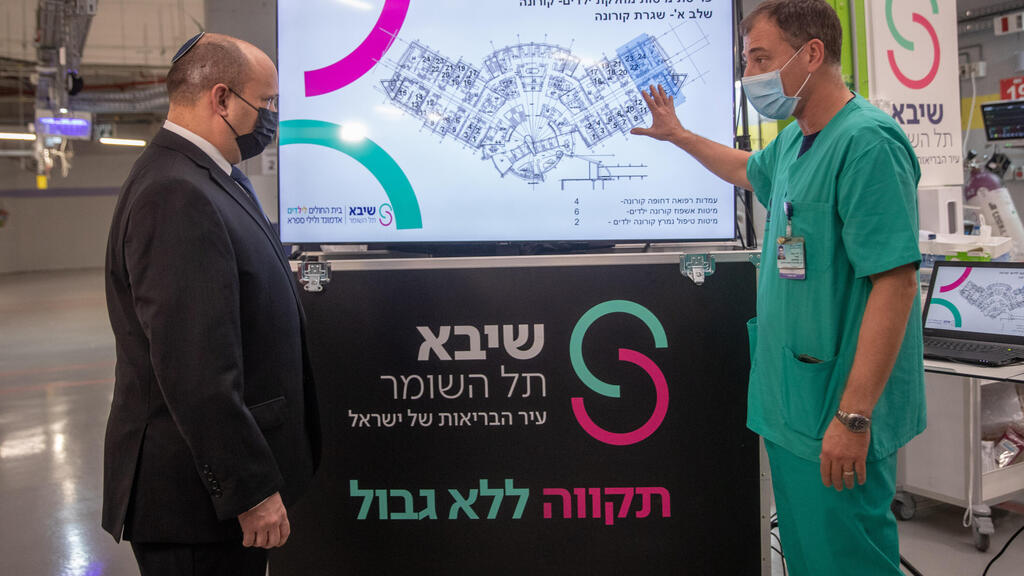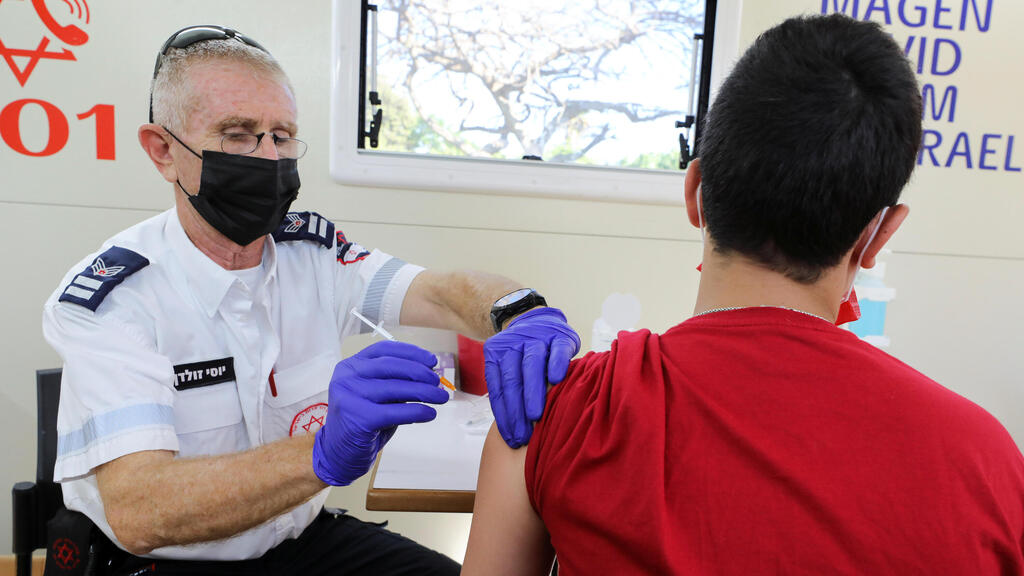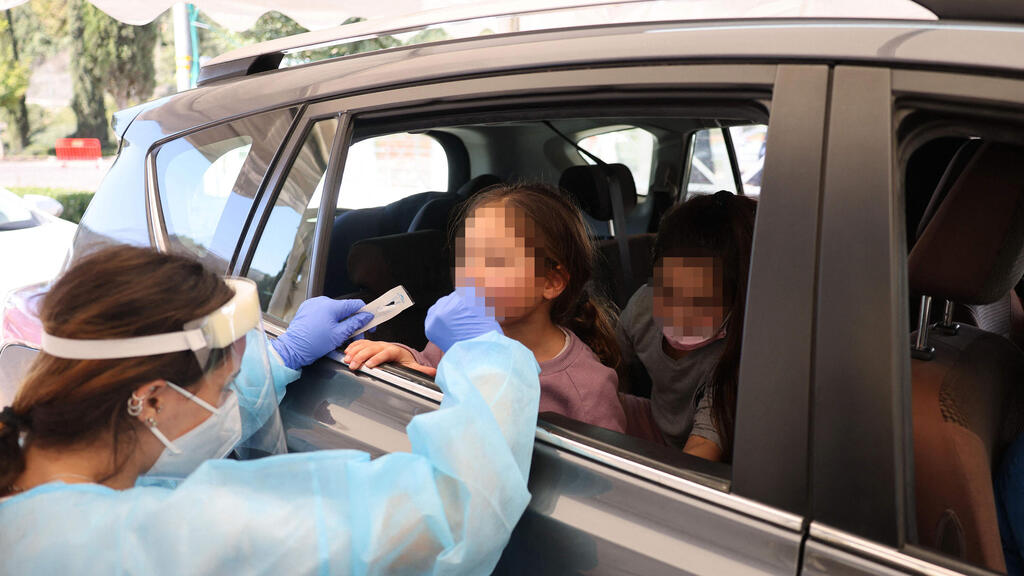Prime Minister Naftali Bennett met remotely on Thursday, with pediatric hospital chiefs and asked them to prepare for a wave of COVID morbidity in children.
Bennett said he was concerned because of the anticipated daily infection rate of over 300,000 within days."
His government has come under fire for keeping schools open despite infections being detected there.
On Thursday, the Health Ministry reported close to 50,000 new infections that were confirmed on the previous day.
"I would like to ask you to prepare for pediatric hospitals and wards being overrun,: Bennett said. "We cannot ignore what we are seeing in other countries."
The administrators of the pediatric hospitals in seven of the country's major medical centers Bennet praised the steps already taken.
"I've learned that in Israel we have two additional lines of defense," the prime minister said. "We have HMO's and we have pediatric emergency rooms that treat children and do not admit them to hospital unless there is a real need to do so and I think that is great," he said.
"But if there is a dramatic change, the responsibility is yours. You have my complete confidence," the prime minister told administrators.
He also thanked the medical professionals for their work over the past two years of pandemic. "When I see you, I feel confident," he said.
3 View gallery


Bennett (left) during a visit to the Sheba Medical Center outside Tel Aviv
(Photo: Ohad Zwigenberg)
The meeting was attended by Health Minister Nitzan Horowits and ministry director general Professor Nachman Ash.
An official who was also in attendance said the hospital chiefs told the prime minister that pediatric hospitalizations were still low, and that in Israel, unlike elsewhere around the world, children with COVID are treated for the most part at home and are under the supervision of HMOs.
"But," the official said, "the current wave has not peeked, and we are looking ahead," he said.
"Things might still change and we must be prepared for a greater number of hospitalizations of children. The prime minister seemed to have been calmed by our conversation and we tried to relay the fact that the situation is under control, for now but some of the hospitals situated far from the big cities, are experiencing a shortage of intensive care beds and staff," he said.
Another subject raised in the meeting was the state of mental health among the youth after months of lockdown and the isolations.
The doctors said there was a deterioration in the mental health of many young Israelis who suffer increasingly from anxiety, depression and eating disorders.
3 View gallery


The coronavirus vaccine administered to a teen ager in Tel Aviv last summer
(Photo: Reuters)
In a briefing held by coronavirus czar Salman Zarka, the senior health official said that he could not say definitively that the Health Ministry would not at some point in the future, recommend lockdown, if hospitals were unable to deal with the surge of COVID patients.
"There is no benefit in more restrictions at this point in the morbidity wave caused by the Omicron variant," Zarka said.
He told journalists that HMOs and coronavirus testing sites and those run by the IDF Homefront Command, people at higher risk from COVID complications, will sent to special queues and their PCR tests will be given preferential processing in order to identify infection.
The move will enable health authorities to quickly identify those who have contracted the virus in order to provide medication in the days close to infection.
First published: 18:50, 01.13.22


